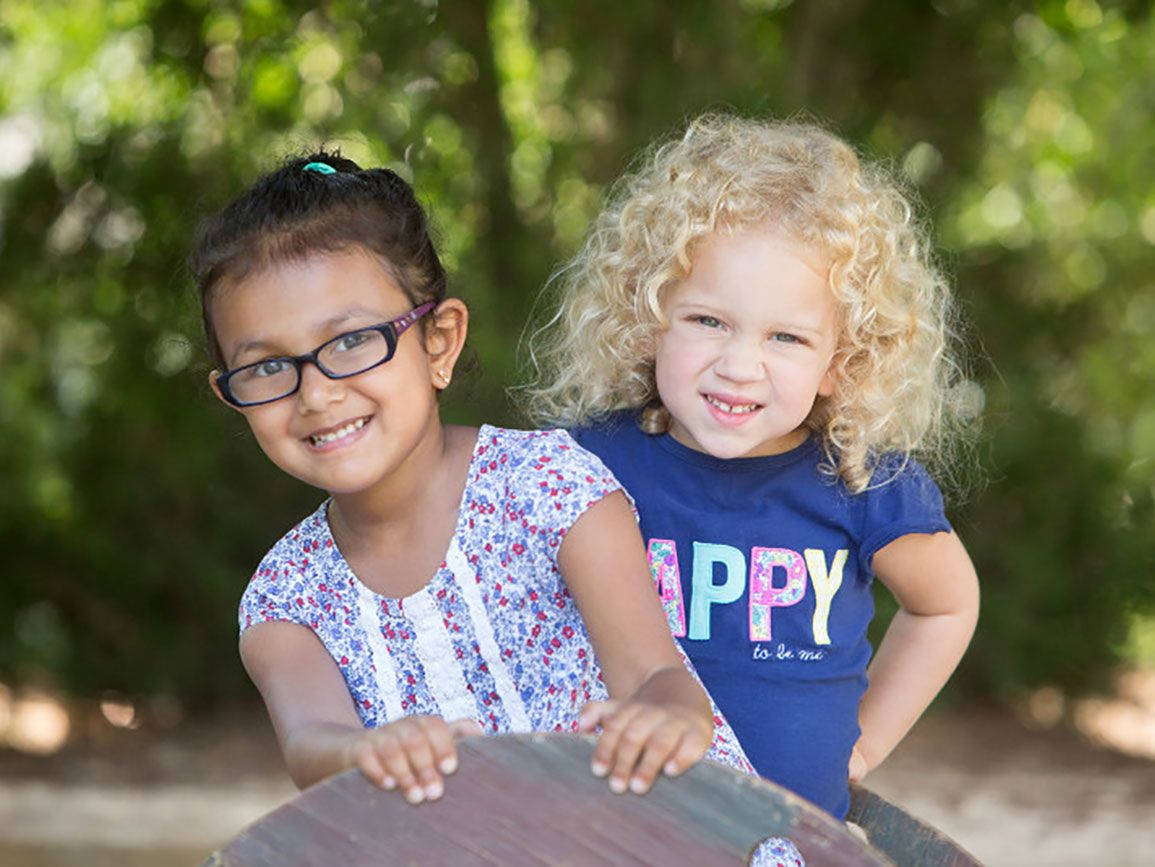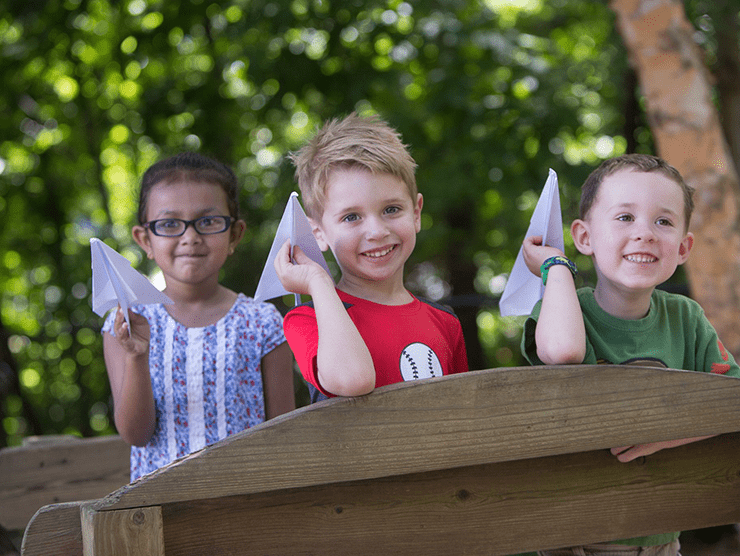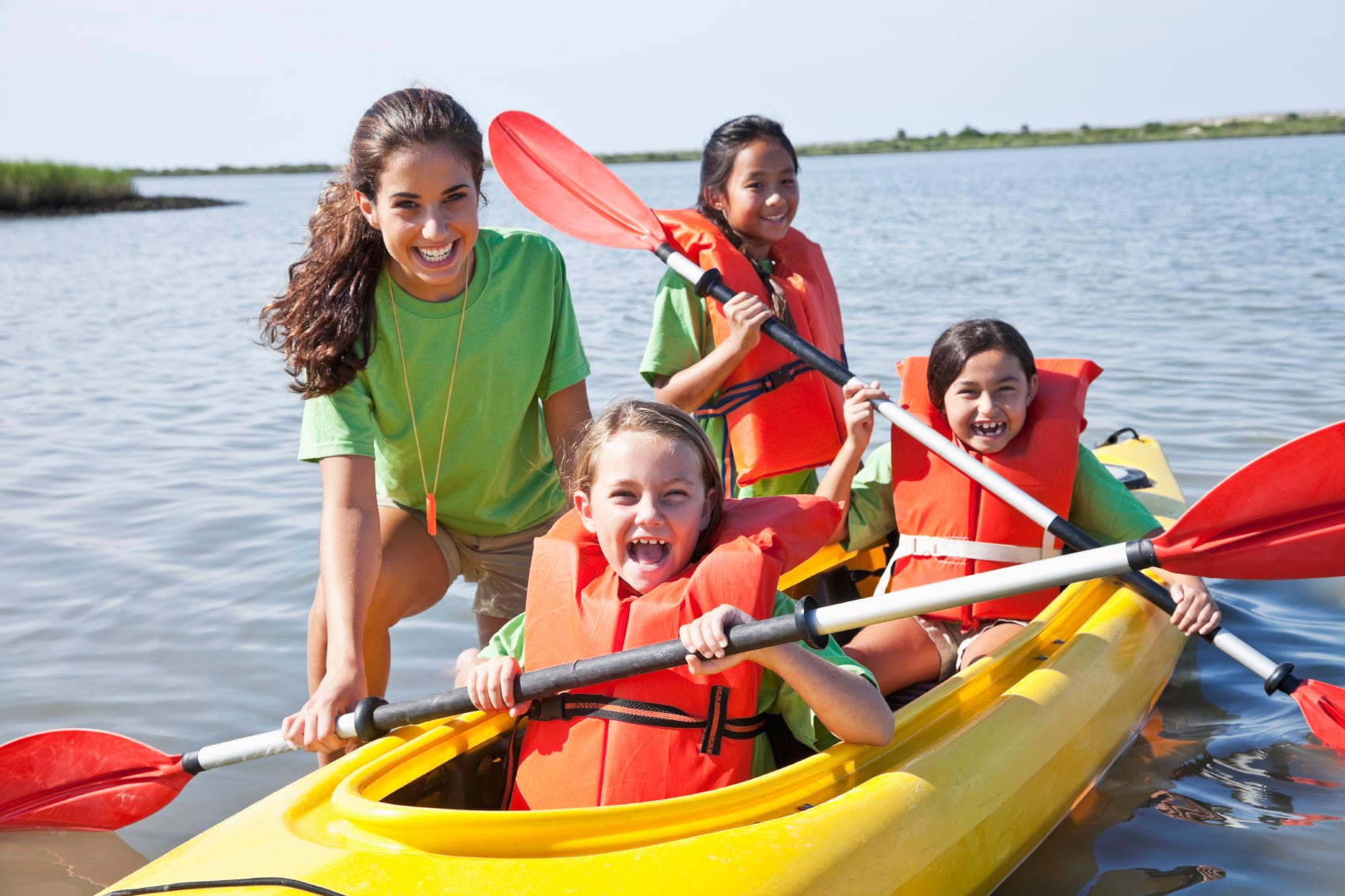As summer approaches, many parents of toddlers look for ways to keep them active, social, and learning. Believe it or not, summer camp can be a great fit—even for 2-year-olds. With the right program, your toddler can enjoy structured play, early socialization, and a gentle introduction to group learning.
Let’s explore the benefits of summer camp, how to choose the right program for your family, and ways to ensure the best experience for your little one.
Is your toddler ready for summer camp?
Is my two-year-old ready for camp? It’s a common concern that really depends on your child, family needs, and the type of program you are considering. For many families, choosing to enroll their toddler in summer camp isn’t just for fun, but for the valuable developmental benefits it can offer. Here’s what a quality toddler camp can offer:- Social skill development: Camp provides young children with the opportunity to learn to share, take turns, and make friends.
- Structured play and development: Activities are created to support early learning through movement, exploration, and creativity.
- New Experiences: Camp introduces young learners to a world of discovery through new experiences with music, art, and nature.
- Preschool prep: Camps introduce group settings in a low-pressure way.
- Routine and confidence: Consistent daily schedules allow toddlers to feel safe and secure, gain confidence, and build flexibility in new environments.
How to choose the right summer camp for your toddler
Before enrolling your child, it is important to know how to choose the best fit for them. Start by having a conversation with the camp staff. Their input can give you a clear picture of what your child’s day will look like and how well the program aligns with your family’s expectations.
Questions to consider asking:
- What age-appropriate activities are offered? You should be looking for things that include a balance of play, creativity, and exploration such as music, arts, and nature.
- What are the staff-to-child ratios? Keep in mind that smaller groups of children with more staff support often mean more individualized attention and an overall safer environment.
- Half-day vs. full-day options? Flexibility is key, especially for toddlers who still take naps or are still adjusting to time away from home.
Evaluate safety and cleanliness
A safe and clean environment is essential for young children. Look out for and ask about:
- Health and safety protocols:
- How are toys and play areas sanitized?
- What are your policies for sick children?
- Emergency procedures:
- Are the staff trained in CPR and first aid?
- In case of an emergency, how are parents contacted?
Consider staff qualifications
The people caring for your child matter just as much as the program itself. You should ask about staff training, background checks, and their experience with younger children. Also, be on the lookout for lower child-to-staff-ratios, ensuring that your child get the attention and support they need throughout the day.
Preparing your 2-year-old for camp
Now that you have chosen the right camp for your little one, the next step is to help your toddler feel confident and excited about this new experience.
What to pack
Preparing and packing the right items can help you and your child feel ready for the day. Most camps will provide a packing list, but here are some essentials to consider:
- Comfort items such as a favorite stuffed animal or blanket can ease separation anxiety and help your child feel more comfortable in a new environment.
- Extra clothes, a hat, and sunscreen for outdoor and water play.
- Extra snacks and a water bottle
- Diapers or pull-ups if your child isn’t potty-trained yet. Make sure to include extra wipes and any creams needed for diaper changes.
Pro tip: Label everything with your child’s name.
Transition tips
It is typical for separation anxiety in children to come and go throughout the early years as children are learning to navigate being in situations away from their trusted caregivers. Starting camp is a big step, so plan a short visit and explore the environment to help your toddler feel more familiar, leading to less anxiousness on the first day.
If your child is not used to going to daycare or being dropped off, try incorporating short separations in the weeks leading up to camp to help them get used to being apart from you. You can try dropping your toddler off at a friend’s or grandparent’s house for a few hours while you run some errands.
Lastly, you want to talk about summer camp in a positive manner with your child leading up to camp. Try reading stories about camp, talking about all the fun activities they will get to do, and reassure them that you’ll always come back.
Stay connected
Good communication between parents and staff can help build relationships and trust. Look for camps that provide short notes, photos, or updates at pick-up to let you know how your child’s day went. Some programs take it a step further and provide more detailed feedback on your child’s development, interests, and development over a period. Summer camp can be a great way to support your 2-year-old’s growth, curiosity, and confidence. From early socialization and hands-on learning to building routines and easing into group settings, the right camp experience can set the stage for a joyful and enriching summer.
While summer camp at Bright Horizons typically starts children who are preschool age, families with toddlers can explore year-round early education options that offer:
- Discovery Driven Learning® guided by children’s innate desire to make discoveries about themselves and the world around them.
- Flexible scheduling with full and part-time options to fit your family’s needs.
- Experienced teachers and staff to guide and nurture your child’s development.
Learn more about summer programs at Bright Horizons or find a center to get started.





